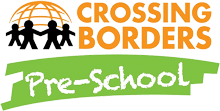We’ve all seen, heard, or maybe even experienced the stereotypical assumption that Americans are inexperienced travelers. Although many Americans travel to Europe, South America, Asia, and even Africa every year, there seems to be a running joke about how unprepared we are to do so. One thing that reinforces this stereotype is the fact that, unlike many other developed nations, learning to speak a foreign language in America doesn’t occur during early childhood education.
Europe Prioritizes Multiple Languages During Early Childhood Education
According to a 2012 report from Eurostat, the statistics arm of the European Commission, in most European countries students begin studying their first foreign language as a compulsory school subject between the ages of 6 and 9. In countries where English isn’t the main language, most students choose that language. This is why European tourists in America are so much more competent. Furthermore, over 20 European countries require that students enroll in a second foreign language for at least one year.
The U.S. Lacks Opportunities For Languages During Early Childhood Education
Conversely, the United States does not have a nationwide foreign-language mandate at any level of education. It’s true that many states do have requirements for the study of at least one foreign language, however these requirements vary widely. While, “many states allow individual school districts to set language requirements for high school graduation,” the Pew Research Center reports that “primary schools have very low rates of even offering foreign-language coursework.”
Sadly, this lack of language immersion during early childhood education means that American children are unable to learn a foreign language during a time when their brains are most able to receive and process this information as if it was their native tongue.
Set The Bar Higher
Want to set the bar higher and give your child the best chance at fluency? Contact Crossing Borders Preschool to learn more about the benefits of bilingual education at an early age.

